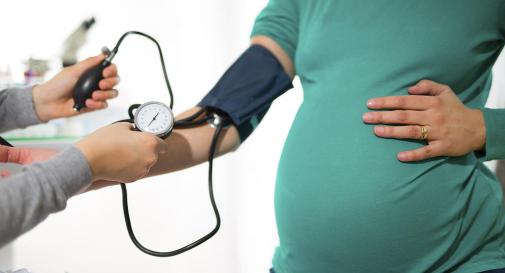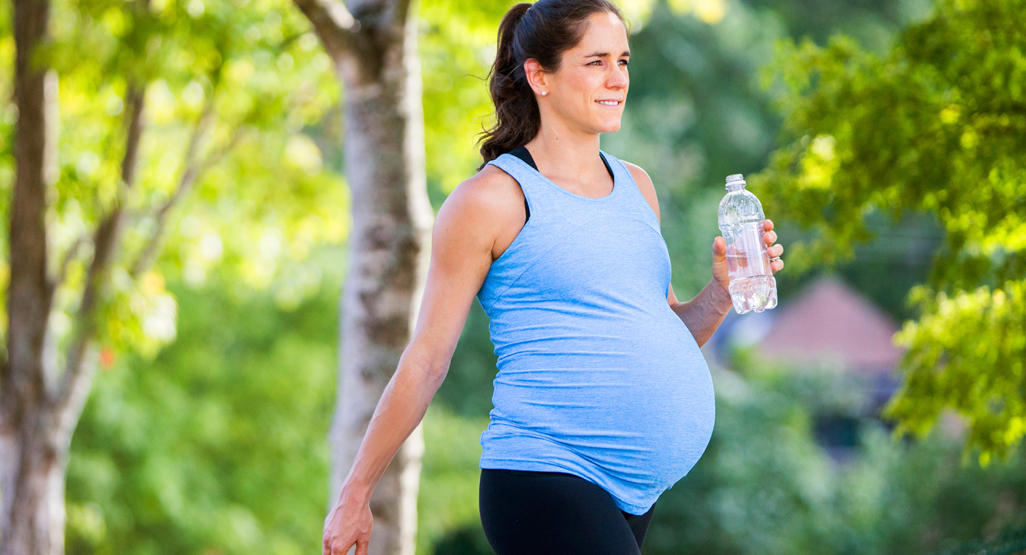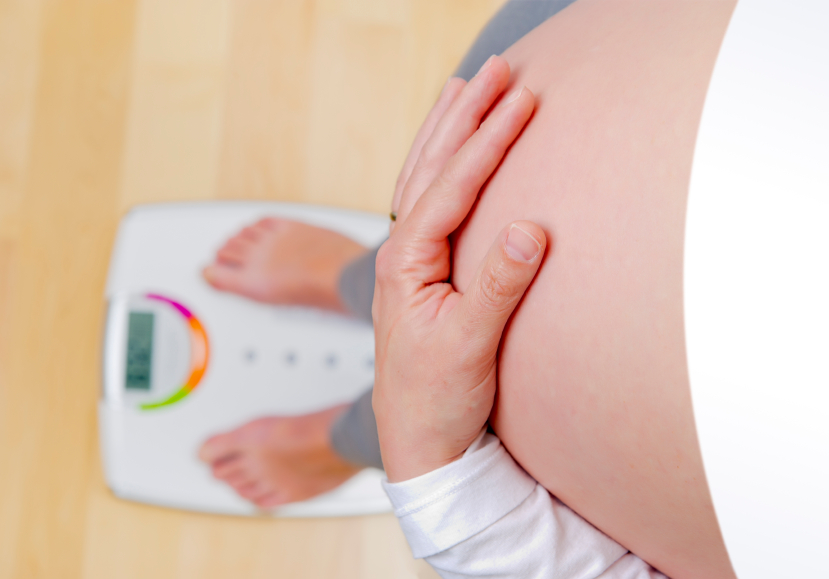Pregnancy is a beautiful phase of every women's life; with little precaution this journey can be memorable. Hellodox wishes happy nine months with expert advice on yoga, exercise, meal plans, natural care and home care. Get the best pregnancy care tips and charts on HelloDox.
Preeclampsia is a high-blood pressure disorder which is unique to pregnancy and develops about 3 to 8% of all pregnant women. According to latest study, it ties alongside it a potential risk of stroke.
According to the study, one in 10 pregnant women may be six times more at a risk of having a stroke during or after childbirth, as compared to normal women.
Women suffering from Preeclampsia commonly complain about high blood pressure, swollen feet, ankles and face and severe headaches. If the current findings published in the journal Stroke are to be believed, Preeclampsia patients have another cause of worry added to their health concern list.
The lead author Eliza C Miller, postdoctoral student at Columbia University in the US said that conditions like chronic hypertension, bleeding or clotting disorders, or urinary tract infections may be at an increased risk of stroke.
Explaining the mechanism behind it the study says, that infections causes inflammation, which can contribute significantly in triggering a stroke, especially amongst the young people.
The study explained that Preeclampsia is an inflammatory disorder, and it could be the infections that could put the woman on the radar of risk.
Researchers analysed health records of 197 women who had a preeclampsia-related stroke and 591 women with preeclampsia who did not have a stroke, as part of their study. They found that the occurrence of attacks and stroke in women suffering from preeclampsia was over 200 per 100,000 deliveries, and more than one in 10 women in the study who had a preeclampsia-related stroke died in the hospital.
Alongside that data, Miller mentioned that it was crucial to take into account that the risk of stroke in women with preeclampsia doesn't end with delivery. And that nearly two-thirds of preeclampsia-related strokes trigger after birth, when the mothers are discharged from the wards.
She also advised, women with preeclampsia to not take any neurological symptoms, such as severe headache, very seriously, especially during the postpartum period.

Increased Vitamin D intake in pregnancy may shield newborns from respiratory infections and asthma, according to a new study. Lead researcher of the study published in the Journal of Allergy and Clinical Immunology, Catherine Hawrylowicz from King's College London said, "The majority of all asthma cases are diagnosed in early childhood implying that the origin of the disease stems in foetal and early life."
For the study the team looked at the effect of taking a supplement of 4,400 IU (International Unit) vitamin D3 per day during the second and third trimesters of pregnancy versus the recommended daily intake (RDI) of 400 IU/day, had on the immune system of the newborn. The researchers posited,that an increased intake in the pregnancy may prove beneficial to slight degree, by improving immune response of the infant.
The strong immune responses in early life, has been linked with decreased development of respiratory ailments like asthma in later life. With the new findings, the team believes that the desirous effect will lead to into an improved respiratory health of the child.
Hawrylowicz said, "Studies to date that have investigated links between vitamin D and immunity in the baby have been observational. For the first time, we have shown that higher Vitamin D levels in pregnancy can effectively alter the immune response of the newborn baby, which could help to protect the child from developing asthma,"
Hawrylowicz added, that further studies and research in the domain shall reveal the long-term impact of the intake on the immunity and overall respiratory health of the newborn.
The baby is here and your days and nights are packed with action, somewhere there is also a burning desire to fit into your old clothes and wear those skinny jeans again. You can do it. NO DIETING all you need is common sense and patience.Let's start at the beginning.If you pre pregnancy weight was well maintained then 11-13kg is considered a normal and healthy weight gain during pregnancy. If you are overweight or obese, this is not the time to try losing weight. The weight gain is essential for the health of the baby, for its growth and development.
Post child birth it is important that you shed all the weight as it is associated with obesity and weight gain later in life, but even more important is that you do it the healthy way and patiently. You put it on over 9 months, your body has been through a physiologically challenging time, give it a break. Crash dieting, poor nutrition, inappropriate physical activity can be very seriously damaging to your health.
During delivery you lose almost 3-4 kg with the baby's weight, placenta, and amniotic fluids. The first week sees additional weight loss because off the additional fluid losses. The fat that accumulated needs to be worked on.
1. Eat everything
Stress of adjusting to a new baby may add to your weight so don't add more stress- eat when you are hungry, choose healthy and the weight will come off. While breast feeding do not restrict your calories too much, eat whole some foods that provide you with nutrients rather than empty calories.
Choose Whole grains like wheat, Bajra, and Ragi which not only provide energy to remain healthy and recuperate,but also fibre to add bulk to the meal and keep the food longer in the sytem. It also helps with constipation , a common problem for lactating mothers. Whole grains are a good source of a number of essential Vitamins, and minerals like folate and phosphorus which nourish your baby as well.
balanced diet
Adequate Proteins help heal and add satiety to the meal. Include good quality proteins from milk, yogurt, beans, lentils, fish, egg and lean meat, nuts and seeds. Sprouted and fermented grams help increase the bioavailibity of Iron , an important nutrient for post pregnancy nutrition. Nuts and seeds also add essential fats like omega -3 to help your new born develop a healthy brain and nervous system. One ounce of these makes for a healthy and filling snack.
Oils and fats are essential for everybody. Even if you are looking at reducing your weight, do not go on a fat free diet. It just isn't healthy. Eat mostly plant based oils like from peanut, ricebran or mustard ,they are good sources of healthy polyunsaturated oils.Desi ghee and butter are also healthy. All provide the same 45 Kcal/5gms, so enjoy the variety.
Whole fruits and Vegetables add vitamins and essential minerals to your meal . While citrus fruits add VitaminC, the green leafy ones add Vitamin A crucial for you and the baby. By choosing a fruit or vegetable for a snack you choose fewer calories, more nutirents and health
You do not need to eat for two people so choose smaller portions, do not skip meals. Traditional til ladoos and gond pinnis are healthy, so is desi ghee, by limiting the intake you maintain your weight and good nourishment at the same time.
2. Drink lots of fluids
it helps with feeding your baby. Water is by far the best fluid for you. It helps fill you up and research has also found that drinking adequate water helps lose weight. Taking a glass of warm water with meals is a traditional way of improving digestion, there by controlling weight. Milk is another essential drink it helps you get adequate calcium of good quality and protects your bones while adding proteins. Calorie free drinks like sugar free aam panna (no artificial sweeteners), bael sharbat, chaas, and traditional zeera and ajwain water all help in easing the flow of breast milk, hydrate, and keep you full.
sit and drink water
Breast feed your baby. It provides the little one with immunity and other numerous benefits. It also helps you lose weight, especially the fat from your body. While breast feeding the body uses fat cells stored in your body during pregnancy to fuel the milk production. This along with the diet calories all get used up. Also while breast feeding you can add up to 600kcal to your diet, but don't use this as an excuse to eat junk.
3. Get active
Exercise is an important part of reducing the post pregnancy flab the healthy way. If you have had a normal (vaginal) delivery and have been exercising during pregnancy, you can start light exercises after 2-3 weeks when you feel up to it. If you have had a c-section or any other complications during pregnancy then consult your doctor before starting out. Start with light exercises for your back and abdomen and gradually add aerobic and strength training as you go along. If you cannot spare 30min in a go break it up to 10 min at a time. Involve your baby in your exercise routine-You can lift your baby above you while lying down for strength training, taking your baby out in a stroller is a good exercise as is carrying him around. Experts advice feeding your baby before exercising to be comfortable from engorged breasts.
Exercise is also helpful in dealing with postpartum depression and relieving stress.
4. Get Enough Sleep
Sleep deprivation, common to new mothers, makes it harder to lose weight. Tiredness increases the levels of Cortisol, which may promote weight gain. Moreover when you are tired or sleep deprived, you may just not care about or feel motivated enough to do anything else. So nap with your baby, catch up on sleep and rest, so that your energy levels remain high and you are able to take good care of yourself to. The great Indian family is a support system you must take advantage of to stay healthy.
Motherhood is the most joyous time for any lady, so enjoy it. Do not be hard on yourself, it may take you 6-9 months to get back into shape whether you breastfeed or not. Loosing half to one kg a week is a good enough target.

Pregnancy is an extremely critical phase in a woman's life. The mother-to-be needs to take care of her nutrition as well as ensure optimum health of the fetus. Maintaining an ideal weight has always been a bus that most pregnant seemed to have missed. While many people are fed double of what they should actually be consuming during pregnancy, most others don't take care of their diet due to their fear of gaining weight. A recent Australian study notes that most pregnant women are not at their ideal weight during pregnancy. They are either obese or underweight.
A whopping 1.3 million pregnant women were examined from all across the world to conclude that more than half of them gained too much weight during pregnancy while a quarter did not gain enough weight. Experts enumerate the dangers and delivery complications tied to both underweight and overweight pregnant women. Obese pregnant women were at a greater risk of caesarean delivery while women with inadequate weight were susceptible to premature delivery. Women who started at a higher weight were more likely to gain weight quicker as the pregnancy progressed.
"You should not put on any weight in the first trimester, a little in the second trimester and just a little more in the third. You should only increase your calorie intake by a small amount. You are not eating for two," Helena Teede, lead researchers, Monash University was quoted by IANS.
After analysing more than 5,300 international studies on pregnant women it was found that at the beginning of pregnancy 38 percent of women were overweight or obese, 55 percent had normal weight and 7 percent were underweight.
pregnancyThe ultimate pregnancy diet is nothing but a timely and well-balanced supply of all nutrients
Undeniably, diet is of the utmost importance during pregnancy. One can't let slip-ups happen. Most women think that since they are carrying, they need to be eating for two - which is just a grave misconception. The ultimate pregnancy diet is nothing but a timely and well-balanced supply of all nutrients. This would ideally include protein - 0.5g/day of additional protein in the first trimester. Iron and calcium are the other two extremely vital nutrients during pregnancy.
"During the entire pregnancy period, an additional 760 mg of iron is needed. The recommended intake of calcium during pregnancy is 200 mg/day," noted Dr. Tamanna Narang, Nutritionist at Alternacare.
Consult your medical expert for a tailor-made diet plan to best suit your needs.

The phase of pregnancy is crucial for the growth and development of the child. A pregnant woman's diet - what she eats and the habits she follows - has a huge implication on the well-being of the child as he or she grows up. It is not just smoking or alcohol than you need to restrict, but also a list of everyday food items that are unhealthy. Rice makes a favourite staple for most people, however, it turns out that it may not be as good for pregnant women with diabetes. A recent study explains that high consumption of refined grains by pregnant women with gestational diabetes may expose their newborns to the risk of obesity.
The study found that mothers who ate the least quantity of refined grain (less than 37 grams per day) were at lesser risk as compared to pregnant women who ate more 156 grams of refined grains a day. Children's risk of obesity persisted even if they were physically active or consumed a stable diet. For the study, published in the American Journal of Clinical Nutrition, the team compared records from 918 mother-child pairs.
Some of the previously conducted studies have linked obesity in kids with a host of factors tied around mother's pregnancy. Stress during pregnancy may put the fetus under pressure and make the newborn susceptible to not only just obesity but a range of health issues. Most pregnant women steer clear of consuming fish owing to any exposure to mercury. A study that was conducted last year concluded that high fish consumption during pregnancy may also make the child prone to obesity.
A couple of researches conducted earlier this year link parent's obesity and mother's excessive cola consumption with developmental issues and risk of obesity in the kid.
"The results provide the first human evidence that artificial sweetener consumption during pregnancy may increase the risk of early childhood overweight," said Meghan B Azad from the University of Manitoba, Canada, reported by IANS. The study analysed close to 3000 pregnant women along with their infants to study the link between sugary drink consumption during pregnancy and changes in infants' BMI in the first year of their birth.
New findings, published in the Journal Pediatrics, show that apart from health related issues, children of obese mothers were nearly 70 per cent more likely to fail tests of fine motor skill -- the ability to control movement of small muscles, such as those in the fingers and hands -- by age 3, when compared to children of normal-weight mothers.
Similar studies and researches point at the possibility of tracing chronic childhood health issues back to parents' health and the pregnancy.












